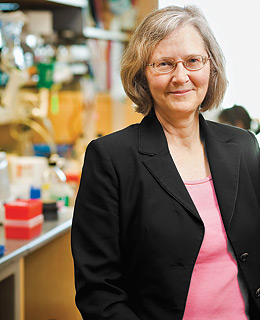
Elizabeth Blackburn
Most biologists will freely admit to a lifelong fascination with all creatures large and small, and Elizabeth Blackburn, 44, of the University of California, San Francisco, is no exception. (As a child growing up in Tasmania she would sing to them, even the poisonous jellyfish.) Her work with one of the lowliest of organisms—pond scum—may lead to innovative ways to treat one of the most terrifying of scourges: cancer.
Working with Tetrahymena, a pond protozoan, Blackburn and her then graduate student Carol Greider co-discovered telomerase, an enzyme that regulates the activity of telomeres, or the DNA at the ends of chromosomes. These snippets keep our genetic blueprint from unraveling and, it turns out, also dictate how often cells divide. Blackburn is now studying their potential as a source of anticancer treatments, since dividing is about all cancer cells do. As a woman in science, Blackburn has also served as mentor for a generation of researchers, including Greider, who now heads her own lab at Johns Hopkins. Heady stuff for a small-town girl who started out simply loving (and singing to) critters.